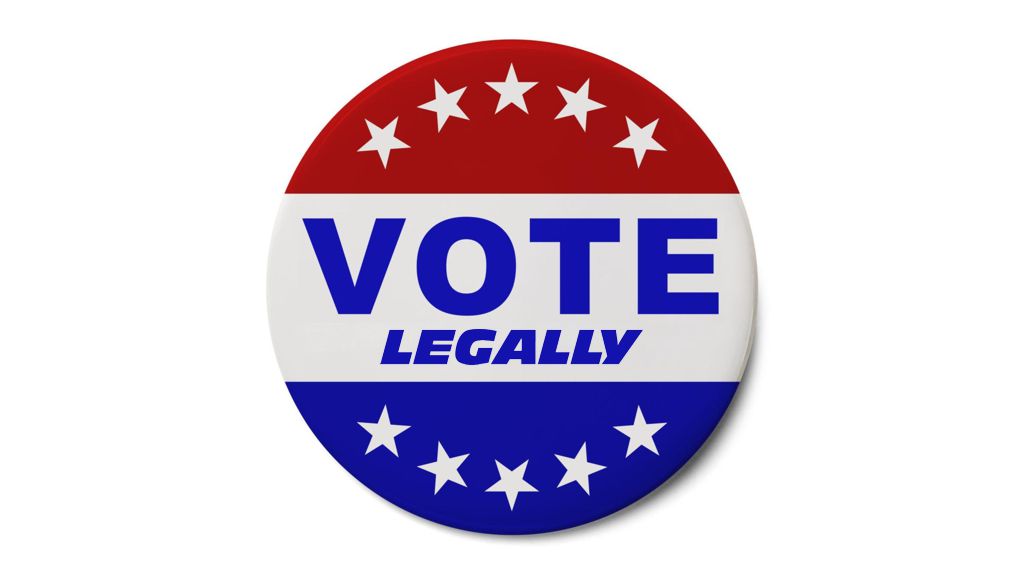
The Heritage Foundation’s Election Fraud Database shows that election fraud does occur in American elections. Errors, omissions, and mistakes by election officials and careless, shoddy election practices and procedures or lack of training can cause and have caused problems for voters and candidates. While there is no accurate information on the extent of these problems, the number of instances in which such issues have occurred and are occurring demonstrates clearly the vulnerabilities in our current patchwork system across the states. The following recommendations of best practices have been developed by Heritage Foundation experts based on long experience in the area of election integrity. These recommendations are intended principally for state legislatures, which under our federal system have the primary responsibility for administering elections.
KEY TAKEAWAYS
The public must have trust in the outcome of our elections. That goal is elusive in large part because of the vulnerabilities that currently exist.
Rules governing the conduct of elections, which are constitutionally entrusted to the various state legislatures, should not be changed shortly before an election.
Private interest groups of whatever partisan affiliation should not be allowed to provide funds to local election authorities to defray the cost of elections.
The Issue
The U.S. Supreme Court said in 2008 in Crawford v. Marion County Election Board that the “flagrant examples of [voter] fraud [that] have been documented throughout this Nation’s history by respected historians and journalists…demonstrate that not only is the risk of voter fraud real but that it could affect the outcome of a close election.” As The Heritage Foundation’s Election Fraud Database shows, election fraud does occur in American elections.
Errors, omissions, and mistakes by election officials and careless, shoddy election practices and procedures or lack of training can cause and have caused problems for voters and candidates. While there is no accurate information on the extent of these problems, the number of instances in which such issues have occurred and are occurring demonstrates clearly the vulnerabilities in our current patchwork system across the states.
In addition, the rules governing the conduct of elections, which are constitutionally entrusted to the various state legislatures, should not be changed shortly before an election, confusing voters, candidates, and election officials, and should not be changed by those with no constitutional authority to do so. Such behavior is anti-democratic and can lead to the manipulation of election rules to favor certain candidates or political parties. Examples are collusive lawsuits by partisans or state and local election officials who unilaterally alter or ignore the rules the legislature has adopted to govern elections.
Private interest groups of whatever partisan affiliation should not be allowed to provide funds to local election authorities to defray the cost of elections and, in exchange for the local election authority’s accepting these funds, dictate, direct, and interfere in the conduct of the election or provide unequal opportunities to vote.
The public must have trust in the outcome of our elections. That goal is elusive in large part because of the vulnerabilities that currently exist.
The following recommendations of best practices have been developed by Heritage Foundation Experts based on long experience in the area of election integrity. These recommendations are intended principally for state legislatures, which under our federal system have the primary responsibility for administering elections.
What States Should Do
Voter Registration
- Verify the accuracy of voter registration lists. Computerized statewide voter registration lists should be designed to be interoperable so that they can communicate seamlessly with other state record databases to allow frequent exchanges and comparisons of information. For example, when an individual changes the residence address on his driver’s license, that information should be sent to state election officials so that the voter registration address of the individual is also changed to his or her new department of motor vehicles (DMV) residence address.
- There should be monthly comparisons of the statewide voter registration list with the databases maintained by DMV; the state corrections department (for felons whose ability to vote has been taken away); state vital records; and state welfare and public assistance agencies to find information relevant to registration such as address changes, deaths, citizenship status, or other factors affecting eligibility.
- The residence address on all new voter registration forms should be compared with county tax records to ensure that the address is actually a residence and not a commercial or industrial address or a vacant or undeveloped lot in a residential area.
- When a new registration is received, the entire voter registration list should be checked against the information available from county tax records to verify how many individuals are registered at that residence address in order to find any anomalies. For example, if the county tax records show that the registered address is a single-family home but the registration list shows that 30 individuals are registered at that address, this should raise a red flag, as this could be an indication of fraud or out-of-date registrations. Such anomalies must be investigated by election officials in a timely fashion.
- Similarly, registrations of individuals registered at the same address but with only slight differences in their names should be checked to ensure that they are not multiple registrations by the same individual. For example, many voter registration systems are not adequately designed to detect that John S. Smith registered at 100 Main Street is the same individual as John Samson Smith who is also registered at 100 Main Street. Voter registration system software should bring such anomalies to the attention of election officials for investigation.
- List maintenance programs need to be required and funded for ongoing and continuous and comprehensive accuracy updates every year. Reports of activity should be provided to the state legislature’s committees of oversight each year detailing the extent and timing of list maintenance programs, both in each county and statewide. Line item funding for list maintenance in budgets should be considered to ensure activity each year in maintaining the accuracy of the voter rolls.
- At least quarterly, states should use the U.S. Postal Service’s National Change of Address (NCOA) system to find voters who have moved and ensure that they are not registered in more than one state. Only about 60 percent of citizens inform the post office or election officials when they move to a new residence. Accordingly, the NCOA system should be supplemented with top-level commercial data that provide notice of a residential move and the best new address of the residence. State officials should supplement data from state vital statistics agencies on deceased registrants with information from the Social Security Death Index, the Social Security Administration’s Master Death File, or independent audits of the voter registration file by commercial groups that identify deceased individuals as part of their businesses.
- States should enter into cooperative agreements with all other states to compare their voter lists to find individuals who are registered in more than one state.
- State election officials should be authorized and given funds to access and contract with commercial data companies, particularly credit agencies, to verify and audit information in their voter registration lists from citizenship status to residence. The information found in such commercial databases is often much more current and up-to-date than the information in government databases.
- State legislatures should require localities to provide information from new registrants to the previous locality of registration to allow the prior jurisdiction to start list maintenance procedures. The voter registration form should require registrants to identify their previous address of registration and authorize the locality to send notice of registration to the prior local election office.
- Voter registration lists should be transparent; freely available (except for confidential information such as Social Security numbers or driver’s license numbers) to candidates, political parties, nonprofit organizations, and the public; and readily accessible.
- Notice that the DMV receives from another state that an individual has received a driver’s license from that other state should by state law be sufficient written notice that the registered voter has changed his residence to the other state and to cancel the individual’s voter registration.
- The voter registration lists provided through electronic poll books to individual polling locations should include photographs of the registered voter from the voter’s driver’s license, voter ID card, or any other photograph of the voter available in any state records.
- If a state has online voter registration, such registration should be allowed only for individuals for whom there is already an existing state record such as a driver’s license that contains all of the information required to register to vote, including a signature.
- In states that take away the ability of a convicted felon to vote, state law should condition requests from federal courts for a state’s voter registration or DMV list to use for federal juries on an agreement by the federal courts to notify state election officials if an individual is convicted of a felony in the federal court.
- Verify citizenship of voters. Only lawful citizens can vote in federal elections. States should therefore require proof of citizenship to register to vote, as well as verify the citizenship of registered voters with the records of the Department of Homeland Security, including access to the E-Verify System.
- State agencies, such as the DMV, should be prohibited from offering any individual the opportunity to register to vote who uses any foreign identification or other document that indicates the individual is not a U.S. citizen.
- When election officials discover that a registered voter is not a U.S. citizen, they should be required by state law to remove that individual from the voter registration roll immediately and send notification to the local district attorney, the state attorney general, the FBI, and the U.S. Department of Justice.
- State agencies should be required to implement protocols that ensure that no alien who is eligible for a public program such as public assistance or a driver’s license is offered the opportunity to register to vote.
- State court clerks and jury commissioners should be required to notify election officials and state law enforcement when an individual who is called for jury duty from the voter registration list is excused because the individual is not a U.S. citizen, is deceased, or has moved out of state.
- State law should condition requests from federal courts for a state’s voter registration or DMV list to use for federal juries on an agreement by the federal courts to notify state election officials if an individual is excused from jury duty because he is not a U.S. citizen, is deceased, or has moved out of state.
In-Person and Absentee Voting
- Require voter ID. A voter should be required to validate his or her identity with government-issued photo ID to vote both in-person or by absentee ballot (as states such as Alabama and Kansas require). Government-issued IDs should be free for those who cannot afford one.
- As part of that effort, every driver’s license or state photo ID issued should note prominently whether the individual is a citizen or noncitizen.
- Acceptable IDs would include driver’s licenses; state non-driver’s ID cards; U.S. passports; U.S. military IDs; tribal government IDs; and IDs issued by state colleges and universities (but only if they prominently display whether the student is a citizen).
- There should be no affidavit or other exceptions of any kind to the ID requirement.
- For individuals who are too disabled to go to a state office on their own to obtain a state ID, states should provide appropriate transportation from their residence to the state ID office and back to their residence or provide a mobile van as Alabama has done to travel to the home of permanently disabled individuals to provide them with an ID.
- All states using electronic poll books should have the photograph of the voter taken from available state records such as the DMV next to the name and registration information of the voter.
- Limit absentee ballots. Absentee ballots should be reserved to those individuals who are too disabled to vote in person or who will be out of town on Election Day and all Early Voting Days.
- All absentee ballots should require notarization or the signature of a witness, as well as the printed name, address, and telephone number of the witness, so that the witness can be contacted if questions arise over the authenticity of the ballot.
- No individual should be allowed to witness more than one absentee ballot of a voter who is not related to that individual. A person should be allowed to witness the absentee ballots of up to five immediate family members.
- The signatures of voters on absentee ballots should be compared to the signatures of the voters on their registration files. If signature comparison software is utilized, it should be set for a 95 percent effective rate.
- No completed absentee ballot received from a voter should be removed from its envelope until the verification process—a verification process that is subject to observation by designated observers of the candidates and/or the major political parties—has been completed.
- All voters wanting to vote with absentee ballots should be required to fill out a signed request, with no electronic signature accepted, and provide a copy of a photo ID. That signature should be authenticated by comparison with the signature of the voter in the voter’s registration file.
- There should be no permanent absentee ballot lists and no automatic mailing to all voters of absentee ballots or absentee ballot request forms.
- The deadline for the receipt of all absentee ballots should be the closing of polls on Election Day to obviate any disputes about the timing of absentee ballots and problems with the U.S. Postal Service’s failure to postmark an envelope. The deadline for a request for an absentee ballot should be based on U.S. Postal Service delivery standards for that state.
- If a state insists on accepting absentee ballots that are postmarked by Election Day, voters should not be sent pre-stamped, pre-postmarked envelopes for the return of their ballots. Since the U.S. Postal Service is unlikely to re-stamp the envelopes, this risks absentee ballots not being mailed until after Election Day when early results are already being reported. This could lead to attempts to manipulate election results.
- To avoid the same absentee ballot being counted more than once, all absentee ballots should have an embedded bar code or microchip. The code would not identify which voter is receiving the absentee ballot since that would compromise ballot secrecy. Instead, the purpose of the code would be to trigger software within the computer scanners to note that a specific ballot is being counted and cannot be counted again. This would prevent individuals from being able to run the same ballot through a scanner multiple times to pad votes for particular candidates. It would also prevent others from photocopying the standard absentee paper ballot and sending in fraudulent votes.
- Require a bar code on all envelopes containing blank absentee ballots that are sent to voters who have requested an absentee ballot. Require a similar code on the envelopes being sent to voters that they are instructed to use to send their completed ballots back to election officials. This would allow ballot envelopes to be tracked through the mail.
- The use of drop boxes should be severely limited. If authorized, states should require that drop boxes be located in secure settings where they are under 24-hour security, under video surveillance, and located in government buildings. The video surveillance should be available to designated representatives of the candidates and major political parties.
- A special procedure should be implemented to investigate the validity of the registration of any registered voter whose requested absentee ballot is returned as undeliverable by the U.S. Postal Service.
- County election offices should scan and provide absentee mail or early ballot information to state election authorities on the request, transmittal, and return of all absentee or mail ballots within 24 hours of request, transmittal, or return receipt of absentee mail ballots or early vote. The request for absentee mail ballot, transmittal, or return receipt of absentee mail or early ballot information from locality or county election offices should be uploaded or transmitted to state election databases electronically and made public to political campaigns or the public for review.
- Voter registration systems at the local and state levels should be upgraded to allow for real-time reporting of absentee mail ballot requests, transmittal and receipt of ballots, or the check-in of early voters.
- Election jurisdictions should provide bipartisan teams of election officials to assist individuals who are seeking to cast an absentee ballot from a hospital, nursing home, or other such facility.
- Prevent vote trafficking. Vote-trafficking (also called vote harvesting) by third parties should be banned. This would ensure that candidates, campaign staffers, party activists, and political consultants are prohibited from picking up and potentially mishandling or changing absentee ballots and pressuring or coercing vulnerable voters in their homes.
- Only a voter, a member of his or her immediate family, or a designated caregiver should be allowed to deliver an absentee ballot personally. Any individual delivering such a ballot should have a completed form that is sent to the voter with the voter’s absentee ballot. That form should identify the name, address, telephone number, and relationship of the individual delivering the ballot; be signed by both the voter and the deliverer; and then be given to election officials along with the completed absentee ballot.
- Allow election observers complete access to the election process. Political parties, candidates, and third-party organizations should all be allowed to have observers in every aspect of the election process because transparency is essential to a fair and secure system. The only limitation on such observers is that they cannot interfere with the voting and counting process. However, a representative of the election office should be present to answer the questions of the observers. They should be legally allowed to be in a position—exactly like election officials—to observe everything going on other than the actual voting by individuals. Election officials should be prohibited from stationing observers so far away that they cannot observe the process, including such procedures as the opening of absentee ballots and the verification process.
- Observers (except for purposes of recording the actual votes cast by individuals) should be allowed to have cameras and recording devices wherever they are stationed.
- Election officials should welcome observation, and cameras should be stationed in all polling locations and ballot counting and election-processing facilities so that the public can watch elections and the canvassing and tabulation of ballots as these events are happening live through the Internet.
- State law should provide that election officials who prevent legally qualified observers from viewing the election process are disciplined, including by suspension, termination, and/or civil fines.
- For this and many other reasons, all polling places should be run either by a politically neutral polling official or jointly by at least two officials representing the two major political parties.
- States should allow any registered voter to be an observer in any polling or other election location in the state and not limit observers solely to the specific county or township where they are registered to vote.
- Provide voting assistance. Any individuals providing assistance to a voter in a voting booth because the voter is illiterate, disabled, or otherwise requires assistance should be required to complete a form, to be filed with poll election officials, providing their name, address, contact information, and the reason they are providing assistance. They should also be required to provide a photo ID.
Counting Votes
- Prohibit early vote counting. To avoid premature release of election results, the counting of ballots, including absentee and early votes, should not begin until the polls close at the end of Election Day. However, if a state insists on beginning the count before Election Day, it should ban the release of results until the evening of Election Day, subject to criminal penalties.
- The counting of ballots should continue without pause until all votes have been tabulated. If extreme circumstances occur that require suspension of the vote count, election officials should notify the public of the suspension and the exact time it will resume.
- No electronic voting machines placed in polling locations should be connected to the Internet, and the computers used in government election departments to tabulate results should be stand-alone computers that are not connected to the Internet or a government-wide network that could allow hackers to interfere with the vote count.
Election Litigation
- Provide state legislatures with legal standing. State legislatures must ensure that they have legal standing—either through a specific state law or through a constitutional amendment if that is required—to sue other state officials such as governors or secretaries of state who make or attempt to make unauthorized changes in state election laws. For example, if a secretary of state extends the deadline set by state law for the receipt of absentee ballots, legislatures should have legal standing to contest that unilateral change that overrides state law. They should be classified as a necessary party in any lawsuit. And voters should be provided by state law with the ability to file a writ of mandamus against any state or local official who fails to abide by or enforce a state election law requirement.
What States Should Not Do
- No same-day registration. Registration should be required before Election Day to give election officials sufficient time to verify the accuracy of the registration information contained on a registration form and to confirm the eligibility of the individual seeking to cast a vote in the upcoming election.
- No automatic voter registration. States should comply with the National Voter Registration Act and provide registration opportunities at state agencies. However, all individuals should be asked at the time of the state agency transaction, such as the application for a driver’s license, whether they want to register to vote. No one should be automatically registered without their consent or knowledge, since this can lead to multiple registrations by the same individual as well as the registration of ineligible individuals such as noncitizens.
- No private funding of election officials and government agencies. States should prohibit election officials from receiving private funding from outside organizations or individuals. This prohibition prevents potential conflicts of interest. Such funding may influence the outcome of elections and violate principles of equal protection since it may lead to unequal opportunities to vote in different areas of a state.
Authors
The Heritage Foundation
The-Facts-About-Election-Integrity-Heritage-Foundation







